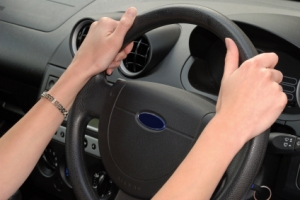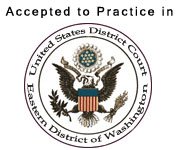Car Driving Tips
Tips 11 to 15
What are the best driving tips?
The law places an affirmative duty to look out and to avoid car accidents.
Everyone behind the wheel of a car will have these same duties. Many states call these defensive driving.
You must follow the rules of the road and be alert when you drive.
This sounds easy and obvious. But if you spend more than 20 minutes commuting to work and are driving 40 minutes per day (to and from work), this would equate to more than 160 hours per year. At one point or another, you will not be paying as much attention as you should, and even if you are, someone on the road will not.
So I hope these driving tips can help you stay away from accidents and insurance claims!
Driving Tip # 11: Hands on the Steering Wheel
Keep both hands on the steering wheel.
Smoking and talking on the cell phone while driving are still allowed in many states, but it highly increases the risk of an accident.
Trying to drive with one hand is a big mistake and in many states you can a ticket. In many occasions, you need both hands to be able to steer yourself out of an accident.
Remember that you should always keep your hands on the right “spot”. 
The right hand should be at 2:00 o’clock and your left should be at 10:00 o’clock (see picture).
It is very easy to get relaxed and only drive with one hand, or to have your hands in positions that would not help you avoid an accident (sometimes it will cause one).
Try not to be careless and keep your hands in a position where you, the driver, will be in control of the car. You never know when a deer, cow, or a child would appear in front of you.
Driving Tip # 12: Put the Music Down
I might be getting old, but please turn the stereo system down.
If you have the loudest bass when in an intersection while the RED light is up, you are also the most annoying person on that road. I know that you are having a good time and sometimes you are trying to get a telephone number. I wonder how many times this actually works for people.
Either way, you have an affirmative duty to yield the right of way to emergency vehicles. If a police officer or an ambulance is around you and you cannot hear them, you will be getting a ticket.
Not only that, if the emergency vehicle has their lights and sirens on, and you fail to yield the right of way, you can be held liable for all injuries and damages if an accident ensues.
It would not matter that you had a green light, and that you were driving the within speed limits, you must pay attention and watch out for emergency vehicles.
Blasting the stereo system will undoubtedly tamper with your ability to avoid this type of scenario.
Driving Tip # 13: Conserve your Distance
Tailgating can cause several accidents.
You should always conserve more than three car lengths distance from the closest vehicle in front of you. If the vehicle in front of you loses control and you rear-end that vehicle, most courts and police officers will cite you (and uphold the citation) for following too close.
It does not matter if the vehicle in front was completely negligent. If you are following too close, you will be cited and you will be found at fault with a large percentage of negligence (if not 100%).
Most states have laws requiring all drivers to keep their distance from the vehicle in front. Those same statutes increase the required distance if the road conditions are less than perfect (rain, snow, fog, etc).
The distance is also increased at nighttime (many times defined as half an hour prior dusk). This driving tip however, is one of those that you want to follow not because it is the law or because you will get a ticket.
This is the tip of driving tip that can safe your life.
When you have a tailgater behind you, just pull over or let them go by. It is not worth your life to get in a fight. In this situation, you need to avoid eye contact.
Tailgating leads to road rage and unnecessary fights.
You never know what the other person is about to do. Try to conserve your distance in front and behind. Also, try to keep your cool.
Driving Tip # 14: Slow down, you can get very fast to your own funeral
There is no question that most of the speed limits on the road are too slow.
You know what we are talking about. Everyone is going 20 mph and the road conditions are great, you could be doing 40 mph.
We just want to advance and get to our destination. It is a very natural feeling. However, speed is a very deceiving thing.
Most vehicles today make 35 mph look like “normal and standard speed”. That is because the technology and the better roads give us the ability to drive in very smooth conditions.
We hardly feel the bumps that our ancestor drivers used to get. But one thing has remained the same. The speed and its force are still deadly.
Driving Tip # 15: Red means Stop, Green means Go
Really?
Always follow the rules of the road. If you are not sure, then visit your local DMV for a mini-manual of your state traffic regulation.
You would not believe how many people run red lights and then claim that the lights were green.
So even if you have a green light, always double check that there are no cars coming. And if there are, make sure that they will stop before entering the intersection.
This will not only save you from getting a ticket for not paying attention to incoming traffic, but it can save you from hurting someone else.
Driving Tips
1. Driving Tips (1 to 5)
2. Driving Tips (6 to 10)
3. Driving Tips (11 to 15)
4. Winter Driving Tips for your car
5. Winter Driver Tips for the driver
6. Winter Car Accidents
7. Snow Tires Regulation
8. Traffic Ticket eBook
9. Beat your Speeding Ticket
Accident Scene
1. Beat your speeding ticket eBook
2. Do I get out of the car?
3. Do I move the car after the crash?
4. Do I have to call the police after an accident?
5. What to do while waiting for the police!
6. What to do when the police gets there?
7. What to do if the paramedics come to the scene of the accident
8. Should I go in the ambulance from the vehicle accident scene?
9. Should I go to the emergency room after an accident?
10. Do I have to report the claim?





